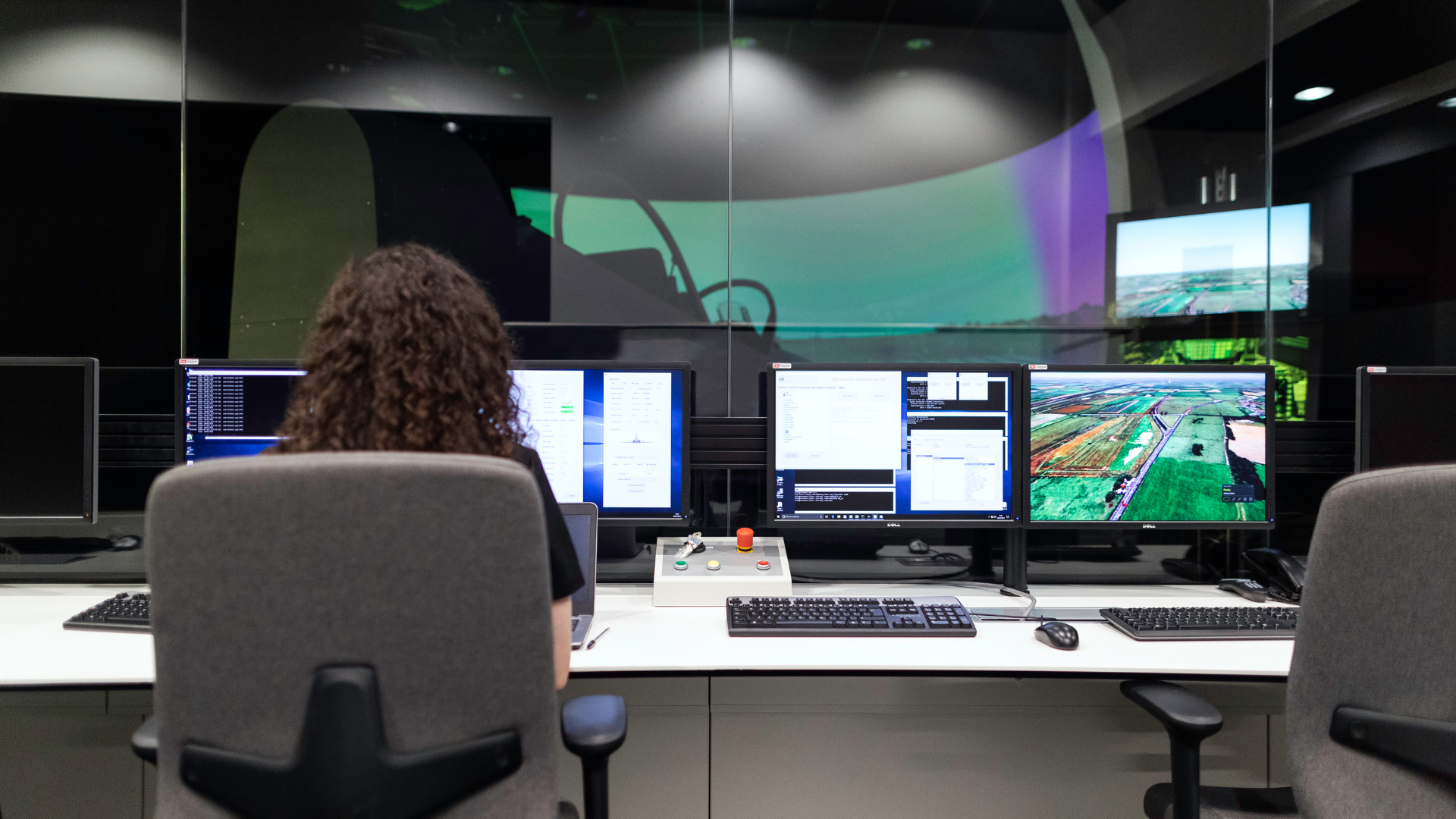
Software Developer vs. Software Engineer: Key Differences, Skills, and Career Paths




Introduction By Adnan Ghaffar Published 26 March 2025




Software development and software engineering are closely related fields, but they have distinct differences that aspiring professionals should understand. Software development focuses on the process of designing, coding, testing, and deploying applications to meet user needs. It is more about the practical aspect of building software solutions using programming languages, frameworks, and tools. On the other hand, software engineering follows a structured and systematic approach, incorporating engineering principles to ensure scalability, reliability, and maintainability of software systems. It involves in-depth planning, architecture design, and rigorous testing to create high-quality software products.
Why Understanding the Difference Matters for Aspiring Professionals
For those entering the tech industry, knowing the distinction between software development and software engineering is crucial for career growth.
Software developers often work on specific coding tasks and application features, while software engineers take a broader perspective, considering software architecture, development methodologies, and lifecycle management.
Understanding these roles helps professionals choose the right career path, acquire relevant skills, and align their expertise with industry demands.
Whether aiming to become a developer who writes efficient code or an engineer who designs robust systems, recognizing these differences ensures better career planning and professional success.
Software Developer vs. Software Engineer: Understanding the Roles

Who is Software Developer
A software developer is responsible for building, designing, and maintaining software applications.
They focus on writing clean, efficient code to create functional programs, often working with front-end or back-end technologies.
Developers typically follow project requirements, translating ideas into working applications.
Primary Responsibilities
- Writing, testing, and debugging code using programming languages such as Python, Java, or JavaScript.
- Collaborating with designers, product managers, and other stakeholders to create user-friendly applications.
- Implementing software updates, bug fixes, and performance enhancements.
- Using frameworks, libraries, and development tools to streamline application development.
- Ensuring that applications meet business and user requirements.
Common Industries and Work Environments
Software developers work across various industries, including technology, healthcare, finance, e-commerce, and gaming.
They may be employed by software companies, startups, or large enterprises, working in teams or as freelance developers.
Their work environment can range from office settings to remote work, depending on the organization’s structure.
Who is a Software Engineer?
A software engineer applies engineering principles to software development, focusing on creating scalable, reliable, and maintainable systems.
Unlike developers, engineers work on the bigger picture, designing the architecture, system structure, and development processes.

They are involved in software lifecycle management, ensuring that systems are optimized for long-term use.
Primary Responsibilities
- Designing and developing complex software systems and architectures.
- Applying engineering principles to solve software-related challenges.
- Conducting rigorous testing, security assessments, and performance evaluations.
- Collaborating with cross-functional teams to align software solutions with business goals.
- Managing software lifecycle processes, including version control, CI/CD pipelines, and system integration.
Common Industries and Work Environments
Software engineers are employed in industries such as technology, cybersecurity, automotive, aerospace, and telecommunications.
They often work for large enterprises, government agencies, or research institutions.
Many engineers take on roles that require deep expertise in system architecture, cloud computing, and DevOps practices.
Key Differences Between Software Developers and Software Engineers
While software developers and software engineers share overlapping skills, their roles, responsibilities, and approaches to software creation differ significantly. Below are the key distinctions between these two professions:
Job Role and Responsibilities
Software developers primarily focus on writing code and building applications based on specifications. They work on front-end, back-end, or full-stack development, ensuring that applications function smoothly.
Software engineers take a broader approach, designing system architecture, optimizing performance, and ensuring scalability. They integrate engineering principles into software development, making systems efficient and maintainable.
Educational Background and Requirements
A software developer may hold a degree in computer science, information technology, or a related field, though many enter the industry through bootcamps or self-learning.

Software engineers often require a strong foundation in engineering, computer science, or software engineering. They may have additional training in system design, mathematics, and algorithm optimization.
Work Approach and Problem-Solving Methods
Developers focus on problem-solving at a code level, troubleshooting application issues, and enhancing functionality.
Engineers approach problems from a system-wide perspective, designing solutions that improve performance, security, and system integrity across multiple applications.
Tools, Technologies, and Frameworks
Developers commonly use programming languages like Python, JavaScript, Java, and frameworks like React, Angular, and Django for application development.
Engineers work with similar languages but also leverage DevOps tools, cloud platforms (AWS, Azure), CI/CD pipelines, and system architecture design tools.
Career Paths and Opportunities
Software developers can specialize in front-end, back-end, mobile development, or full-stack roles, with opportunities to grow into lead developer or software architect positions.
Software engineers often transition into system architecture, DevOps engineering, or technical leadership roles, requiring a deep understanding of large-scale systems.
Salary Comparison and Job Market Outlook
Both roles offer competitive salaries, with engineers generally earning higher pay due to their broader responsibilities and expertise in complex system design. The job market for both professions remains strong, driven by demand for software solutions across industries.
Collaboration and Team Dynamics
Developers work closely with designers, product managers, and testers, focusing on creating functional user experiences.
Engineers collaborate with developers, system administrators, and network engineers to ensure software solutions align with organizational goals.
Project Involvement and Lifecycle
Developers engage in specific phases of software projects, such as coding, debugging, and UI/UX implementation.
Engineers oversee the entire software development lifecycle, from planning and architecture to deployment and maintenance, ensuring software stability over time.
Skill Set Comparison: Software Developer vs. Software Engineer
Both software developers and software engineers require a strong technical foundation, but their skill sets vary based on their responsibilities. Below is a comparison of the key technical and soft skills needed for each role.
Technical Skills
1. Programming Languages
- Software Developers: Proficient in languages like JavaScript, Python, Java, C#, or Swift, depending on their specialization (web, mobile, or backend development).
- Software Engineers: Use similar languages but often work with lower-level programming languages (C, C++) and scripting for system design and automation.
2. Development Frameworks
- Software Developers: Rely on frameworks like React, Angular, Django, Spring, and .NET for building applications.

- Software Engineers: Use frameworks but also design and optimize system-level architectures, incorporating DevOps tools and cloud-based solutions like AWS, Kubernetes, and Docker.
3. Testing and Debugging Skills
- Software Developers: Perform unit testing, integration testing, and debugging using tools like Jest, Mocha, or Selenium.
- Software Engineers: Conduct rigorous software validation, security assessments, and performance optimization using testing frameworks, CI/CD pipelines, and load-testing tools.
Soft Skills
1. Communication and Teamwork
- Software Developers: Collaborate with UI/UX designers, product managers, and fellow developers to ensure smooth application functionality.
- Software Engineers: Communicate complex technical concepts to cross-functional teams, including system architects, network administrators, and DevOps engineers.
2. Problem-Solving and Analytical Thinking
- Software Developers: Troubleshoot application issues and optimize code efficiency.
- Software Engineers: Solve large-scale software challenges, including performance bottlenecks, scalability, and security risks.
3. Time Management and Adaptability
- Software Developers: Work within Agile or Scrum methodologies, managing coding tasks and feature development efficiently.
- Software Engineers: Handle long-term projects, balancing multiple development phases while ensuring software stability and scalability.
Choosing the Right Path: Developer or Engineer?
Deciding between a career as a software developer or a software engineer depends on various factors, including personal interests, skill sets, and long-term career goals. While both roles offer exciting opportunities in the tech industry, understanding their key differences can help you make an informed decision.
Factors to Consider
- Preferred Work Approach – If you enjoy hands-on coding, designing user interfaces, and building applications, a software development role may be ideal. If you prefer working on large-scale systems, designing architectures, and solving complex technical challenges, software engineering might be the better fit.
- Complexity of Work – Software developers focus on creating functional applications, while software engineers deal with system-wide solutions, scalability, and optimization. Engineers often require a deeper understanding of algorithms, data structures, and system architecture.
- Education and Learning Curve – A software developer can enter the industry through a coding bootcamp, self-learning, or a degree in computer science or IT. A software engineer, on the other hand, typically requires a strong background in computer science, engineering principles, and software architecture.
Industry Demand and Career Growth Potential
Both fields have strong job demand, but the growth trajectory differs:
- Software Developers are in high demand across various industries, including web development, mobile applications, and enterprise software. Roles such as front-end developer, back-end developer, and full-stack developer offer numerous opportunities.
- Software Engineers have broader career prospects in large-scale enterprise software, cloud computing, cybersecurity, and DevOps. The demand for engineers is rising, especially for roles like system architect, DevOps engineer, and solutions engineer.
Future of Software Development and Engineering
The fields of software development and software engineering are rapidly evolving, driven by advancements in artificial intelligence (AI), automation, and emerging technologies. As industries continue to digitize, both roles will see significant transformations in responsibilities, tools, and career opportunities.
Impact of AI and Automation on Both Roles
- AI-Powered Development and Engineering
- AI-driven code generation tools (e.g., GitHub Copilot, ChatGPT, Tabnine) are automating repetitive coding tasks, allowing developers to focus on complex problem-solving.
- AI is also helping engineers optimize software architecture, detect vulnerabilities, and improve system efficiency through predictive analytics.
- Automation in Software Testing and Deployment
- Continuous Integration and Continuous Deployment (CI/CD) pipelines are becoming more sophisticated, reducing manual testing and deployment efforts.
- Developers and engineers are increasingly using automated testing tools like Selenium, Cypress, and AI-based testing frameworks.
- Shift Toward Low-Code and No-Code Development
- Low-code/no-code platforms are enabling faster application development, allowing non-technical users to create software solutions.
- While this reduces the need for some traditional coding tasks, software engineers are still essential for designing and maintaining complex, scalable systems.
Emerging Trends in Software Careers
- Cloud Computing and DevOps
- The demand for cloud-native development, containerization (Docker, Kubernetes), and DevOps practices continues to grow.
- Engineers with expertise in AWS, Google Cloud, and Azure are highly sought after.
- Cybersecurity and Secure Software Development
- With increasing cyber threats, security-focused development and engineering are becoming essential.
- Secure coding practices, ethical hacking, and AI-powered security solutions are in high demand.
- Blockchain and Web3 Development
- Decentralized applications (dApps), smart contracts, and blockchain solutions are expanding career opportunities.
- Engineers specializing in blockchain security and scalability are gaining prominence.
- AI and Machine Learning Integration
- Developers and engineers are incorporating AI/ML models into applications, enhancing automation, personalization, and decision-making.
- Python, TensorFlow, and PyTorch skills are increasingly valuable in AI-driven software development.
- Quantum Computing and Next-Gen Computing
- Emerging fields like quantum computing are opening new possibilities in cryptography, optimization, and complex simulations.
- Engineers with knowledge in quantum programming languages (e.g., Qiskit, Cirq) will have a competitive edge.
The Future: Will Developers and Engineers Still Be in Demand?
Despite automation and AI advancements, skilled software developers and engineers will continue to be in high demand. The roles will evolve, requiring professionals to adapt, learn new technologies, and focus on higher-level problem-solving rather than repetitive coding tasks.
Conclusion
Software developers and software engineers play distinct yet interconnected roles in the tech industry. While developers focus on coding, building applications, and enhancing user experiences, engineers take a broader approach, designing scalable and efficient software systems. The career paths and skill requirements for these roles differ, with software engineers often requiring a deeper understanding of system architecture, algorithms, and engineering principles.
FAQs
Neither role is inherently better—it depends on your interests and career goals. If you enjoy hands-on coding, UI/UX development, and application creation, becoming a software developer may be the right choice. However, if you're interested in system architecture, scalability, and complex problem-solving, a software engineering career might be a better fit.
Yes, in many cases, software engineers hold a higher-level role than software developers. Engineers focus on designing and optimizing entire systems, while developers primarily work on coding and implementing features. Many organizations consider engineers to have a broader scope of responsibility, which often places them at a higher career level.
Generally, software engineers earn more than software developers due to their advanced knowledge of system architecture, scalability, and DevOps practices. However, salaries can vary depending on experience, industry, and location. Senior-level developers with specialized expertise can also command high salaries.
Software development and software engineering have different challenges. Development focuses on coding, debugging, and application design, while engineering involves system-wide problem-solving, performance optimization, and infrastructure management. Engineering often requires a deeper understanding of mathematics, algorithms, and computer science principles, making it more complex for some individuals.
Adnan Ghaffar is the visionary CEO of CodeAutomation.ai, a platform dedicated to transforming how businesses build software through cutting-edge automation. With over a decade of experience in software development, QA automation, and team leadership, Adnan has built a reputation for delivering scalable, intelligent, and high-performance solutions.
Under his leadership, CodeAutomation.ai has grown into a trusted name in AI-driven development, empowering startups and enterprises alike to streamline workflows, accelerate time-to-market, and maintain top-tier product quality. Adnan is passionate about innovation, process improvement, and building products that truly solve real-world problems.


